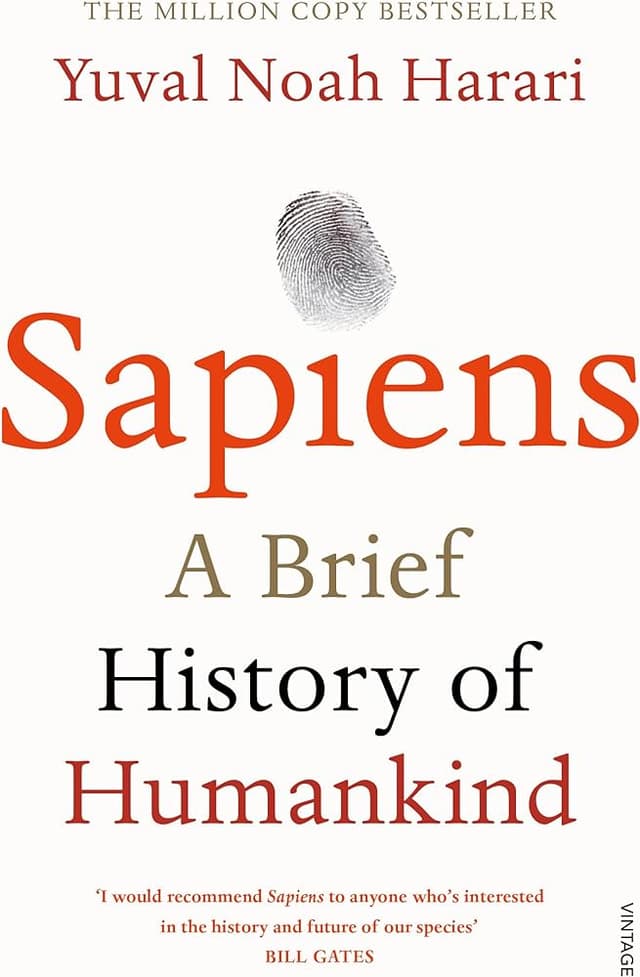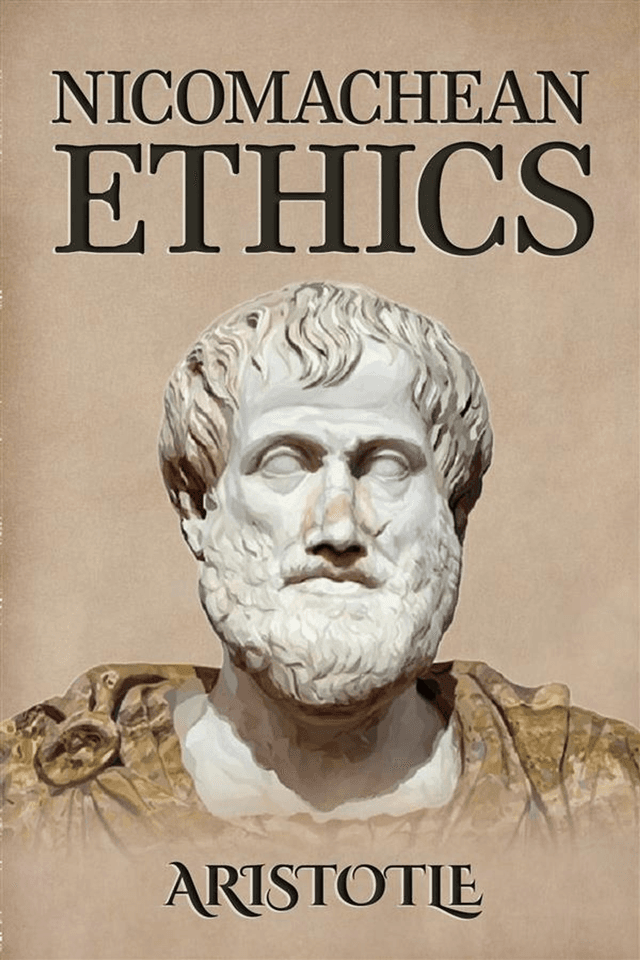Nicomachean Ethics vs. Sapiens: A Brief History of Humankind by Yuval Noah Harari
Nicomachean Ethics
"Nicomachean Ethics," written by the ancient Greek philosopher Aristotle, is a foundational text in Western philosophy. This work explores the nature of ethical virtue and the path to a good and fulfilling life. Aristotle delves into concepts such as happiness (eudaimonia), virtue (arete), and the importance of practical wisdom (phronesis). The text is a detailed examination of how individuals can achieve moral and intellectual virtues through habitual practice and rational deliberation.
Sapiens: A Brief History of Humankind by Yuval Noah Harari
The great thing about this book is that it takes a big-picture view of human history. It attempts to explain the main themes of human history without getting bogged down in the details. Sapiens also debunks many popular myths about human history, including the one that people today live happier lives and have better diets than our hunter-gatherer predecessors. It comes with an epilogue about the future of humankind in light of ever-accelerating technological progress. With the recent advances in AI it is more relevant than ever. If you're going to read one book on history this year, read this one.

Reviews
Reviews
| Item | Votes | Upvote |
|---|---|---|
| Essential reading for students of philosophy and ethics | 1 | |
| Practical wisdom | 1 | |
| Offers profound reflections on ethics and the good life | 1 |
| Item | Votes | Upvote |
|---|---|---|
| Dense and complex | 1 |
| Item | Votes | Upvote |
|---|---|---|
| No pros yet, would you like to add one? | ||
| Item | Votes | Upvote |
|---|---|---|
| No cons yet, would you like to add one? | ||
Frequently Asked Questions
'Nicomachean Ethics' is specifically focused on ethical virtue and the nature of a good life, making it essential for those studying philosophy and ethics. In contrast, 'Sapiens' provides a broad overview of human history and societal development, which may touch on ethical themes but does not delve deeply into ethical philosophy. Therefore, for a focused understanding of ethics, 'Nicomachean Ethics' is more relevant.
'Sapiens' offers a sweeping analysis of human history and behavior, examining how societal structures and cultural developments have shaped humanity. While 'Nicomachean Ethics' focuses on individual moral virtues and ethical living, it does not provide the same breadth of historical context. Thus, if you're looking for insights into human behavior from a historical perspective, 'Sapiens' may be more beneficial, whereas 'Nicomachean Ethics' is better for understanding personal ethics.
'Nicomachean Ethics' is often considered dense and complex, requiring careful reading and contemplation to grasp Aristotle's philosophical arguments. On the other hand, 'Sapiens' is written in a more accessible style, making it easier for a general audience to engage with. Therefore, 'Nicomachean Ethics' is generally more challenging to read than 'Sapiens'.
'Nicomachean Ethics,' written by the ancient Greek philosopher Aristotle, is a foundational text in Western philosophy. This work explores the nature of ethical virtue and the path to a good and fulfilling life. Aristotle delves into concepts such as happiness (eudaimonia), virtue (arete), and the importance of practical wisdom (phronesis). The text is a detailed examination of how individuals can achieve moral and intellectual virtues through habitual practice and rational deliberation.
Pros of 'Nicomachean Ethics' include it being essential reading for students of philosophy and ethics, offering practical wisdom, and providing profound reflections on ethics and the good life. However, a con is that the text can be dense and complex.
'Sapiens: A Brief History of Humankind' by Yuval Noah Harari takes a big-picture view of human history. It explains the main themes of human evolution and development without getting bogged down in details. The book also debunks many popular myths about human history, such as the idea that people today live happier lives or have better diets than our hunter-gatherer predecessors. It ends with an epilogue discussing the future of humankind in light of accelerating technological progress, making it particularly relevant given recent advances in AI.
'Sapiens: A Brief History of Humankind' discusses several main themes, including the cognitive revolution, the agricultural revolution, the unification of humankind, and the scientific revolution. The book explores how these events have shaped human societies, cultures, and economies. It also delves into the impact of technological advancements on the future of humanity.
Yuval Noah Harari is an Israeli historian and professor in the Department of History at the Hebrew University of Jerusalem. He is known for his bestselling books 'Sapiens: A Brief History of Humankind', 'Homo Deus: A Brief History of Tomorrow', and '21 Lessons for the 21st Century'. Harari's work focuses on broad historical processes and their implications for the future.
Pros of 'Sapiens: A Brief History of Humankind' include its broad, comprehensive view of human history and its ability to debunk popular myths. The book is also praised for its engaging writing style and thought-provoking insights. Cons might include its broad scope, which can sometimes lead to oversimplification of complex historical events, and the fact that some readers may find its speculative future predictions less convincing.




















